Facing yellow brick: features, properties and application
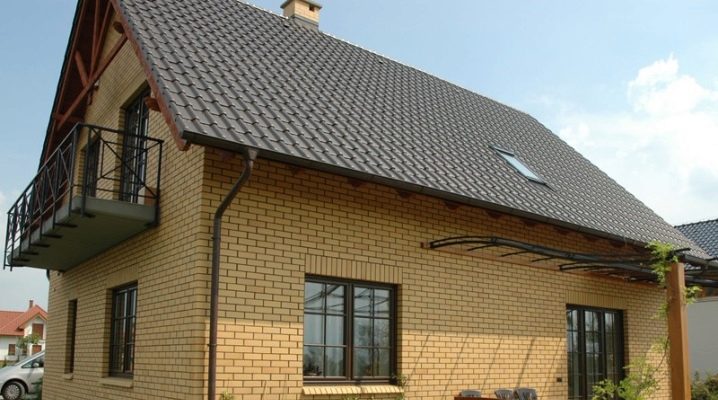
If you need a good material for wall decoration, yellow facing brick is ideal for this, which is valued for its appearance, reliability, strength and good thermal conductivity. It does not change its color throughout the entire period of use. When moisture gets in, fungi do not appear on the surface. It can serve for 20 years without high-quality and decorative transformations.
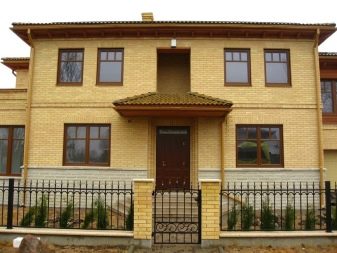
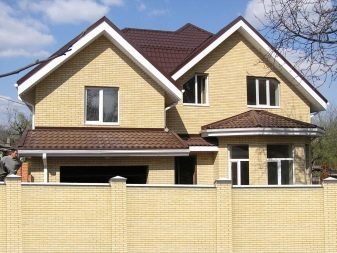
Parameters and classification
The yellow facing brick is made in double or one-and-a-half. Slightly less often, it is single. All sizes are regulated by GOST 530-2007. The dimensions are as follows:
- single - 250x120x60 mm;
- one and a half - 250x120x88 mm;
- Double - 250x120x103 mm.
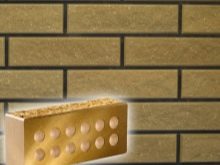

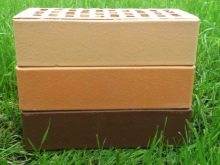
All these dimensions have been verified over the years of practice by the craftsmen. And at present, such dimensions of products are the most acceptable for transverse or longitudinal alternation of bricks during laying.
One-and-a-half or single bricks are made with die-cut or solid, and therefore weigh from 3 to 5 kg. The numbers fluctuate depending on the density of the materials. In addition to the fact that a brick can have a smooth surface, its front side is often made with various decorative impressions.
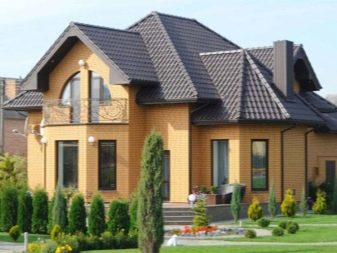
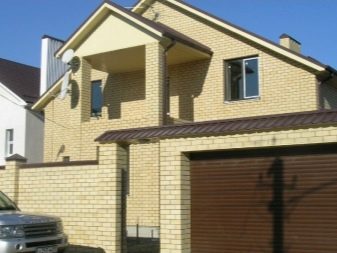
In this case, double bricks are produced only with internal voids, of which there may be a different number.
Other products are classified by the type of surface, which is:
- corrugated;
- smooth;
- decorative.
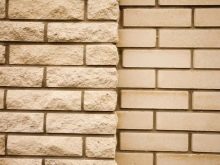
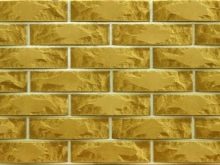
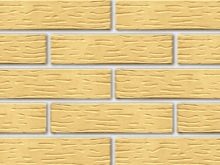
Features of production
Face brick is made from various raw materials, which is why its color first of all depends. The composition of an ordinary brick includes the following elements:
- sand mixture;
- clay;
- water;
- pigments.
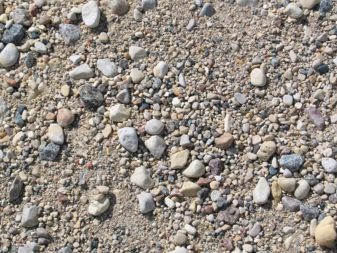
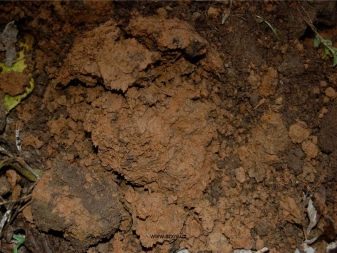

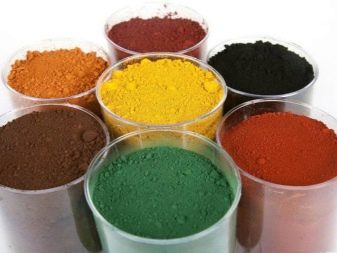
During production, the resulting mass is pressed under high pressure into molds, which ensures high frost resistance and low moisture absorption by the product, since the brick is dense and does not allow water to pass through. Since only natural and natural ingredients are used in production, while adding a minimum amount of third-party impurities, this material is environmentally friendly and completely safe for humans or nature. If required, the products are fired and glazed after pressing.
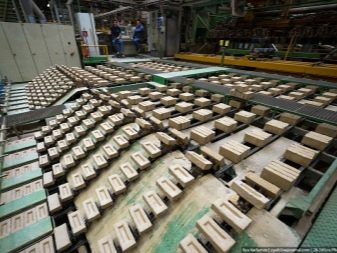
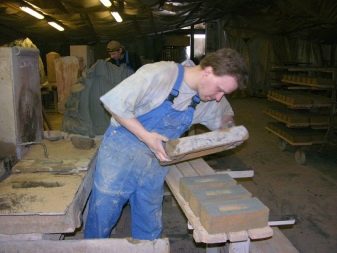
As a result of such manipulations, the yellow brick turns out to be of the correct shape, each of its elements has right angles and clear edges. The color of the product does not change throughout the entire life of the brick.
When choosing, it is recommended to buy goods from one batch so that the shade of the material does not differ.
Advantages and disadvantages
Yellow brick of different shades has many positive qualities, the main of which is decorativeness. The wall of the house, which will be decorated with such material, always looks beautiful and stands out from others. In addition, the benefits include:
- color fastness;
- frost resistance;
- easy care;
- resistance to negative external factors;
- high fire resistance;
- hydrophobicity;
- strength;
- durability;
- environmental friendliness.
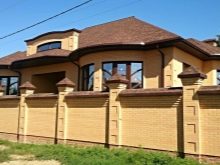
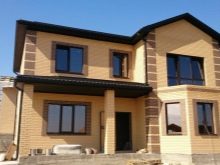
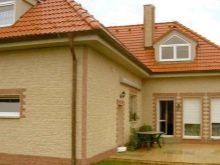
Moreover, this material has certain disadvantages, among which the main one is the high price. And also the disadvantages include the fact that usually this brick is made in the form of a parallelepiped, and therefore the scope of its use is limited to these forms.
Scope of use
Yellow bricks can only be used for cladding structures, in the construction of fences, fireplaces, gazebos and other structures that will not be finished in the future. When choosing, it is worth remembering that this material cannot be used for swimming pools or baths, since it has increased water absorption.
Finishing work must be done carefully. Despite the fact that the material has the exact dimensions, the masonry can move due to the uneven seam. Therefore, when carrying out work, you need to monitor the correct location of each brick in a row. Grouting joints can be made with contrasting ones, which will allow the whole structure to look more original.
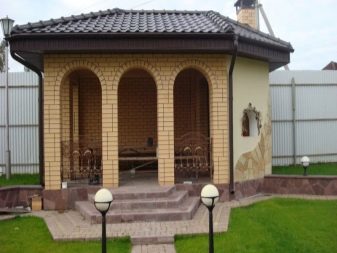
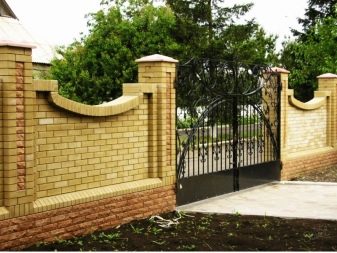
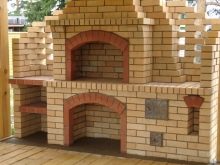
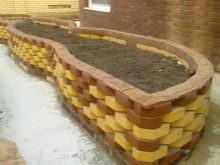
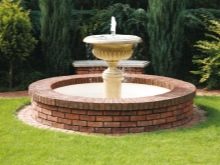
Work technology
Depending on what weight and type of brick will be used when facing the facades of buildings, it is recommended to first check the strength of the foundation, since this coating is heavy and some bases may not withstand it. To determine the approximate weight that will affect the foundation, you need to calculate the number of bricks in one row, and then multiply this indicator by the weight of each brick.
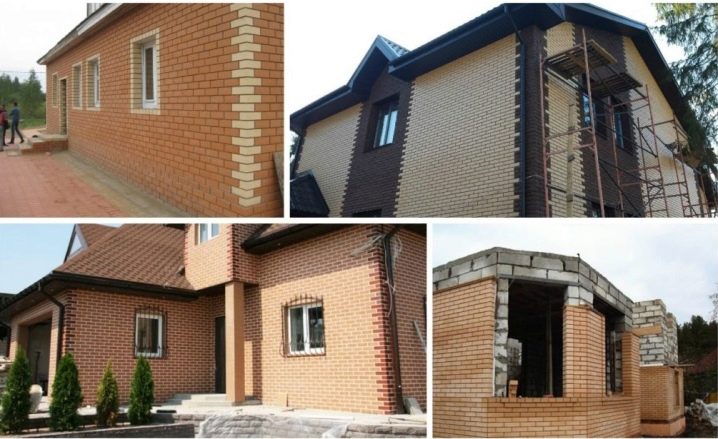
It is noted that the average weight of one item may vary. In addition, you may come across non-standard products manufactured according to European standards, which differ in a larger direction in length, width and height. But this does not affect the quality of the products, while making it possible to save money on the purchase. If you correctly combine such products with others, then in the end less material will be required for the construction of the same object (provided that the price is equal).
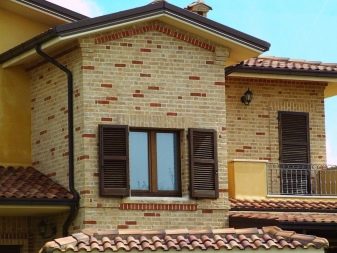
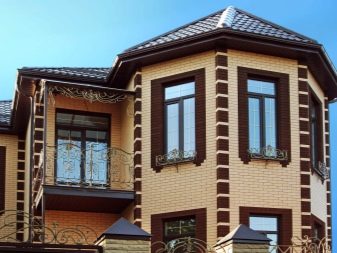
Features of work with yellow bricks
A solution of cement is mixed with the addition of sand.
- When laying bricks, it is necessary to make small gaps between the stones for ventilation.
- The seam thickness should be no more than 1.5 cm.
- For cladding one surface, it is necessary to adhere to a certain technology and use the same solution in color so that the base is uniform and looks harmonious.
- So that there is no dust on the surface of the brick during laying, it must be dipped in water first.
- The evenness of the masonry is checked with a plumb line.
- The mortar is applied with a trowel.
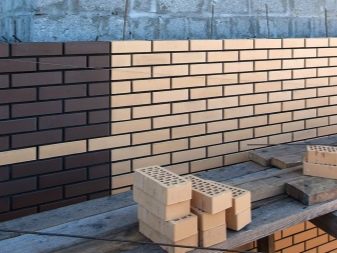
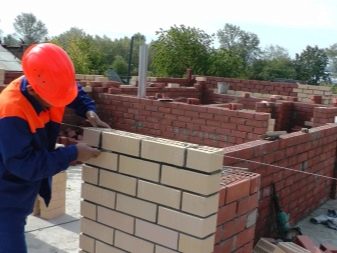
If you carry out all the work on finishing the facade according to the above rules, then you can modernize and decorate any building that will stand for many years.
Facing bricks in other colors
For any facing material, its decorative effect is a priority, which is considered first of all. Further, product characteristics and other parameters are taken into account, and therefore manufacturers over time expand their range of products and produce bricks not only of yellow color, but also of other shades. The color of the product is primarily influenced by the type of clay and the amount of iron in its composition.
If necessary, a pigment can be used in the production, with the help of which the composition is painted in the desired color. The firing method also plays a significant role, which is why the similarity of the shades of stones, depending on the production batch, mainly depends.
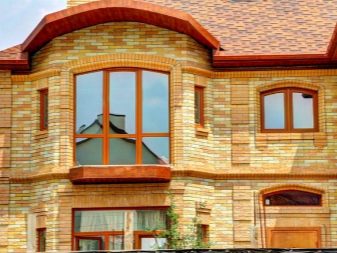
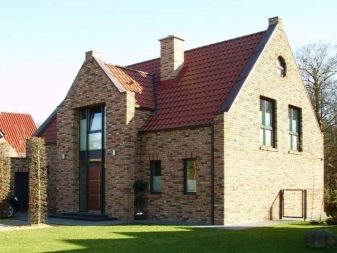
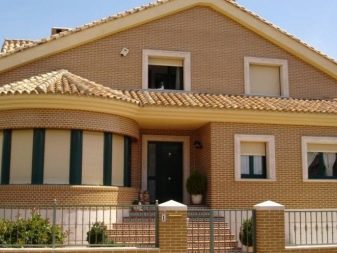
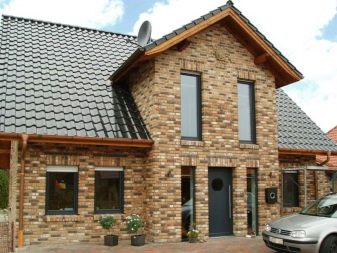
In addition to the yellow shades of this material, peach or apricot colors are popular. These shades are warm and look good. With professional work, as well as the correct combination of bricks of different colors, you can create patterns or combinations that will decorate and make any structure unusual. And also with bricks of a different color, you can trim certain elements on the facade, for example, window or door openings.
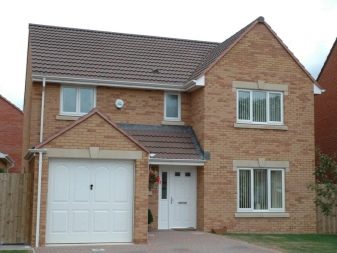
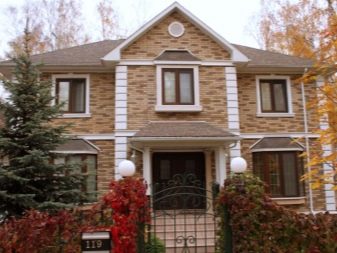
The peach color is ideal for decorating single-storey buildings, in addition, it is effectively used and emphasizes the practicality of multi-storey buildings. Therefore, today everyone can choose the color of the brick and its type that will best suit the conditions of its use.
When such material is purchased from sellers or dealers of the manufacturing plant, you must first check the quality certificates and make sure that these products are manufactured in the factory, meet all the specified parameters. In this case, you can be sure that the brick will stand for many years and will not lose its characteristics.
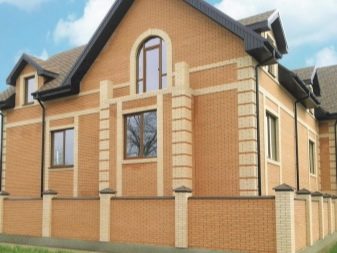
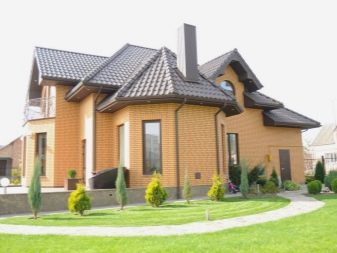
For practical advice on laying and choosing bricks, see the video.













The comment was sent successfully.